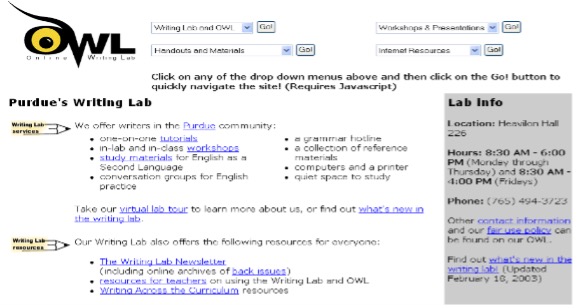Writer’s best e-resources.
Aids in writing
Mastering English is a must to become internationally recognised
Introduction
Writing is a craft; and any craftsman, even the expert one, needs proper tools to perform his or her craft. This also goes for writers, notably for non-native speakers of English (NNSEs) who may find themselves at a slight disadvantage compared with native speakers when it comes to producing influential, globally recognised work, which most likely needs to be published in Eng-lish. Mastering English at a high level of proficiency seems to be a must to become international-ly recognised; and to achieve a high level of language proficiency, the NNSE may benefit from drawing on a number of language resources, both general and more specialised ones.
Longman’s Dictionary has usage notes
General mono-language resources
The Internet offers access to a vast amount of general mono-language resources of which I will recommend only two. The first one is Longman’s Dictionary of Contemporary English which has a broad coverage, very good examples, collocations and information on grammar (for example, advice is uncountable, brown-circled in picture) and usage, for example the difference between the noun advice and the verb advise (red arrow on picture opposite).
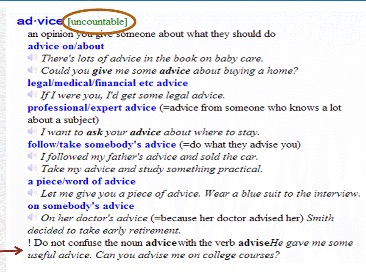
Oxford’s ALD gives you pronunciation, prepositions and much more
The second general language dictionary I wish to recommend is the much renowned Oxford’s Advanced Learners’ Dictionary (ALD) which adds to the neat features of Longman’s Dictionary a learner focus. This focus implies giving important key information to learners about such things as grammar (e.g. for the word advice that it is uncountable) and choice of prepositions (on) just after the entry word. As you may see from the picture opposite (brown-circled in picture), the ADL also offers both English and American pronunciation (here for advice). Indeed, a feature you may find useful before going on a conference to make an oral presentation. Another valuable feature of the ALD is its good examples.
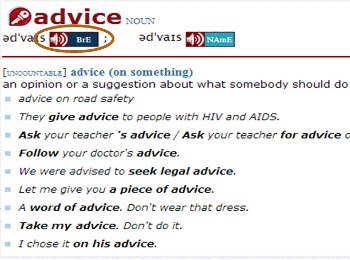
Oxford’s outperforms Longman’s on specialised terminology
The general mono-language dictionaries have some specialised terminology; and here Oxford’s ALD outperforms Longman’s on the quality of the definitions and by offering pronunciation as you may see from the extract of the picture opposite.

For subscribers, go to Oxford or Stedman
Specialised terminology resources
Mono-lingual dictionaries
The Internet provides access to a comprehensive portal of on-line dictionaries at Dictionary.com where you get decent definitions and sufficient explanations of the meaning of most specialised terms. Those who want to use specialised monolingual dictionaries may also benefit from the free, online version of the Oxford collection of dictionaries through Oxford Reference, which offers neat, extensive explanations drawn from the entire Oxford family of dictionaries. However, to obtain the full definitions, you need to become a subscriber.
And if this is your choice, you may as well go for the most comprehensive and slightly more expensive Stedman’s Online Medical Dictionary, which is very reliable and up-to-date on clinical terminology.

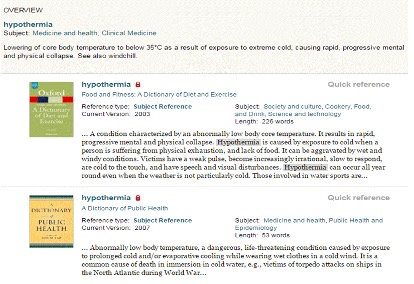

Be very cautious with online translation
Online translation
Translation is big business, and a number of tools exist to aid those who wish to do online translation, e.g. Google Translate. However, most of these tools produce translations based on mere statistical resemblance, and you are generally well advised not to trust machines. The only tool I can cautiously recommend for online translation is MyMemory.Translated.Net; and I do so only because it gives you warnings and frequency indications, and because it fronts reliable sources like the European Medicines Agency’s and the equivalent national drug agencies’ certified translations.

For lay-language collocations, see Longman’s or Oxford’s dictionaries
Finding the right word combinations
One of the distinctive features of a good English text is that it contains combinations of words that are often used together in a way that sounds correct. Such word combinations are called collocations or “fixed expressions”. For general or lay language terms (e.g. to raise an issue; to encounter resistance), you may find many of these collocations in Longman’s or Oxford’s dictionaries. However, when you need more specialised terminology you must search elsewhere.
For specialised collocations, see British National Corpus
One of the better though not most recently updated online corpora is the British National Corpus. This is a 100+ million word bank with representative natural language sentences that you may use to check language usage or for finding specialised collocations. For example, a search for which verbs to use with the adjective seronegative gives you a range of sentences from which you may deduce that seronegative combines with verbs like to be, to become, to remain, to revert. Using this resource will allow you to build lists of words with which to combine your core terms.
You should use Ludwig.guru on a regular basis
Even better is the very comprehensive ludwig.guru which gives you specialised terminology in context. This resource allows you the opportunity to check and double-check usage and to find collocations; it also gives you translations and various other very useful search options. On top of this, Ludwig.guru allows you to access the articles in which the text strings you find were published. Using this resource is not just a should; it is short of a must; that is if you are in any doubt whatsoever about how to combine words, of course.
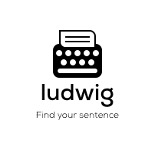
Manchester University Phrase Bank gives you the nuts and bolts of academic writing
What about phraseology
Finding the right collocations that make your language sound like proper English is one thing. Finding the phrases that conventionally signal the rhetorical purpose of the moves in your text is quite another thing. For this, too, there are resources available on the Internet. At the Manchester University Phrasebank you may find all the conventional standard phrases used to signal the moves you prototypically find in research papers, like “Establishing the importance of a topic”, which is one of the steps you use in the first move in the introduction. For a small monthly charge of only about 6 Pounds, you may download a much extended version, which will give you numerous good phrases to help you develop your language and tune the linguistic form of the moves to maximum impact.
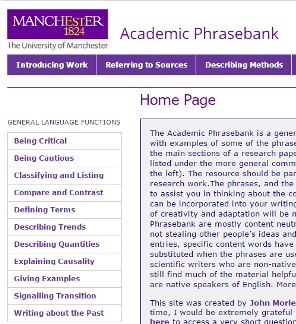
Activate your passive vocabulary
Synonyms and antonyms
Vocabulary learning is an important and indispensable part of any language learning process. To enrich your vocabulary, you may want to use the Reverso dictionary, which gives you not only synonyms but also antonyms. It is probably the best resource to use for activating passive vocabulary, i.e. turn words you know already into words of which you have active command when writing.
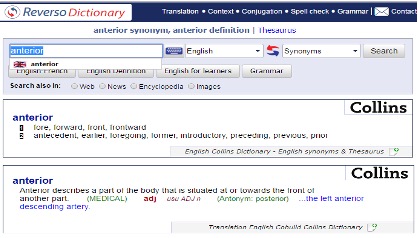
Webster’s grammar online is easy to use
Online grammars
Grammars are rarely accessible to non-linguists or professionals with little prior language training because they use the linguist’s technical jargon. An exception to this is Webster’s online Guide to Grammar and Writing. This resource allows you to access knowledge about language at a level that should pose no comprehension problems; indeed, you may access the resource at both grammar level (words, sentences, etc.) and at discourse level (research papers, essays, etc.). This resource is a goldmine of valuable knowledge about grammar.. Moreover, it has excellent drills with answer keys so that you may check your mastery of what you have learned.
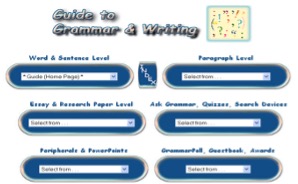
Use Purdue University Online for technical and scientific texts
Another online grammar you will undoubtedly find very useful is the Purdue Online Writing Lab which is specialized in technical and scientific writing. Just like Webster Online, it contains an abundance of good advice on the composition of technical and scientific texts; as well as many easy-to-learn rules on issues that are traditionally cumbersome, like the use of commas or semicolons for example.
